Searched: Evangelical
News
After years of disagreement and the departure of thousands of churches, the change passed without debate.
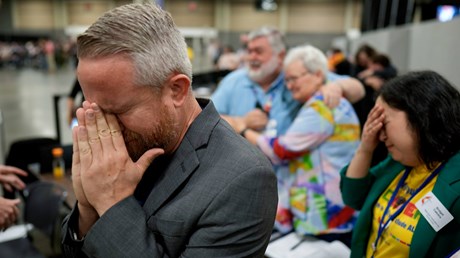 United Methodists meeting for their top legislative assembly Wednesday overwhelmingly overturned a measure that barred gay clergy from ordination in the denomination, a historic step for the nation’s second-largest Protestant body.With a simple vote call and without debate, delegates to the General Conference removed the ban on the ordination of “self-avowed practicing homosexuals”—a prohibition that dates to 1984.With that vote, the worldwide denomination of some 11 million members joins the majority of liberal Protestant denominations such as the Episcopal Church, the Presbyterian Church (USA), the Evangelical Lutheran Church in America, and the United Church of Christ, which also ordain LGBTQ clergy.“We’ve singled out one group for discrimination for 52 years,” said Ken Carter, bishop of the Western North Carolina Conference. “And we’ve done that on an understanding of homosexuality whose origins came when it was understood to be a disease and a disorder.”That, he said, has now changed. “Increasingly,” he said, “people see that God’s spirit is in gay and lesbian people.”The morning vote on the motion was part of a larger series of calendar items voted on in bulk. They also included a motion barring superintendents, or overseers, from punishing clergy for performing a same-sex wedding or prohibiting a church from holding a same-sex wedding, though the actual ban on same-sex weddings in churches has yet to be voted on.The vote on the calendar items was 692–51, or about 93 percent in favor.After the vote, LGBTQ delegates and their allies gathered on the floor of the Charlotte Convention Center to sing, hug, cheer, and shed tears. ...Continue reading... United Methodists meeting for their top legislative assembly Wednesday overwhelmingly overturned a measure that barred gay clergy from ordination in the denomination, a historic step for the nation’s second-largest Protestant body.With a simple vote call and without debate, delegates to the General Conference removed the ban on the ordination of “self-avowed practicing homosexuals”—a prohibition that dates to 1984.With that vote, the worldwide denomination of some 11 million members joins the majority of liberal Protestant denominations such as the Episcopal Church, the Presbyterian Church (USA), the Evangelical Lutheran Church in America, and the United Church of Christ, which also ordain LGBTQ clergy.“We’ve singled out one group for discrimination for 52 years,” said Ken Carter, bishop of the Western North Carolina Conference. “And we’ve done that on an understanding of homosexuality whose origins came when it was understood to be a disease and a disorder.”That, he said, has now changed. “Increasingly,” he said, “people see that God’s spirit is in gay and lesbian people.”The morning vote on the motion was part of a larger series of calendar items voted on in bulk. They also included a motion barring superintendents, or overseers, from punishing clergy for performing a same-sex wedding or prohibiting a church from holding a same-sex wedding, though the actual ban on same-sex weddings in churches has yet to be voted on.The vote on the calendar items was 692–51, or about 93 percent in favor.After the vote, LGBTQ delegates and their allies gathered on the floor of the Charlotte Convention Center to sing, hug, cheer, and shed tears. ...Continue reading... |
Every sin requires Christ's atonement. But the Bible shows God punishing—and repairing—different sins differently.
 Christian theology consistently holds together truths that seem to want to fall apart: Jesus is fully God and fully human. People are sinners and created in the image of God. The church is local and universal.And yet, despite what we affirm, in practice, Christians are often unable to walk and chew gum at the same time. Instead of holding two truths in tension, we tend to slide to one side or the other, distorting it in the process. We treat Jesus either as an invulnerable, transcendent being or as a mere prophet. We speak as if humans are either so degraded we are capable of nothing but sin or mostly fine with a few rough edges. We think of the church as if it were only our own sect or we minimize the local congregation.Evangelical theologians have done great work in Christology, anthropology, and ecclesiology, respectively, to retrieve those three truthful tensions. But there is a fourth tension yet to be retrieved: All sins ruin us, and yet not all sins ruin us equally.To start, let us be clear: Sin—however small—is a serious thing. And sin is only atoned for by the work of God in Jesus Christ. But saying that Christ is the only one who atones for all sin is different from saying that all sins do the same kind of work on us.All sins break the sinner and create havoc around us. And yet the Scriptures consistently depict the sins we do as different, not only in effect on one another but before God. Within the Law, for example, different social remedies are given for different sins, and so are different sacrifices (Lev. 4; Ex. 21). Not everything requires a bull or a goat. Sometimes a dove will do. In the Prophets and Proverbs, God distinguishes—and even prioritizes—certain ...Continue reading... Christian theology consistently holds together truths that seem to want to fall apart: Jesus is fully God and fully human. People are sinners and created in the image of God. The church is local and universal.And yet, despite what we affirm, in practice, Christians are often unable to walk and chew gum at the same time. Instead of holding two truths in tension, we tend to slide to one side or the other, distorting it in the process. We treat Jesus either as an invulnerable, transcendent being or as a mere prophet. We speak as if humans are either so degraded we are capable of nothing but sin or mostly fine with a few rough edges. We think of the church as if it were only our own sect or we minimize the local congregation.Evangelical theologians have done great work in Christology, anthropology, and ecclesiology, respectively, to retrieve those three truthful tensions. But there is a fourth tension yet to be retrieved: All sins ruin us, and yet not all sins ruin us equally.To start, let us be clear: Sin—however small—is a serious thing. And sin is only atoned for by the work of God in Jesus Christ. But saying that Christ is the only one who atones for all sin is different from saying that all sins do the same kind of work on us.All sins break the sinner and create havoc around us. And yet the Scriptures consistently depict the sins we do as different, not only in effect on one another but before God. Within the Law, for example, different social remedies are given for different sins, and so are different sacrifices (Lev. 4; Ex. 21). Not everything requires a bull or a goat. Sometimes a dove will do. In the Prophets and Proverbs, God distinguishes—and even prioritizes—certain ...Continue reading... |
After years of disagreement and the departure of thousands of churches, the change passed without debate.
 United Methodists meeting for their top legislative assembly Wednesday overwhelmingly overturned a measure that barred gay clergy from ordination in the denomination, a historic step for the nation’s second-largest Protestant body.With a simple vote call and without debate, delegates to the General Conference removed the ban on the ordination of “self-avowed practicing homosexuals”—a prohibition that dates to 1984.With that vote, the worldwide denomination of some 11 million members joins the majority of liberal Protestant denominations such as the Episcopal Church, the Presbyterian Church (USA), the Evangelical Lutheran Church in America, and the United Church of Christ, which also ordain LGBTQ clergy.“We’ve singled out one group for discrimination for 52 years,” said Ken Carter, bishop of the Western North Carolina Conference. “And we’ve done that on an understanding of homosexuality whose origins came when it was understood to be a disease and a disorder.”That, he said, has now changed. “Increasingly,” he said, “people see that God’s spirit is in gay and lesbian people.”The morning vote on the motion was part of a larger series of calendar items voted on in bulk. They also included a motion barring superintendents, or overseers, from punishing clergy for performing a same-sex wedding or prohibiting a church from holding a same-sex wedding, though the actual ban on same-sex weddings in churches has yet to be voted on.The vote on the calendar items was 692–51, or about 93 percent in favor.After the vote, LGBTQ delegates and their allies gathered on the floor of the Charlotte Convention Center to sing, hug, cheer, and shed tears. ...Continue reading... United Methodists meeting for their top legislative assembly Wednesday overwhelmingly overturned a measure that barred gay clergy from ordination in the denomination, a historic step for the nation’s second-largest Protestant body.With a simple vote call and without debate, delegates to the General Conference removed the ban on the ordination of “self-avowed practicing homosexuals”—a prohibition that dates to 1984.With that vote, the worldwide denomination of some 11 million members joins the majority of liberal Protestant denominations such as the Episcopal Church, the Presbyterian Church (USA), the Evangelical Lutheran Church in America, and the United Church of Christ, which also ordain LGBTQ clergy.“We’ve singled out one group for discrimination for 52 years,” said Ken Carter, bishop of the Western North Carolina Conference. “And we’ve done that on an understanding of homosexuality whose origins came when it was understood to be a disease and a disorder.”That, he said, has now changed. “Increasingly,” he said, “people see that God’s spirit is in gay and lesbian people.”The morning vote on the motion was part of a larger series of calendar items voted on in bulk. They also included a motion barring superintendents, or overseers, from punishing clergy for performing a same-sex wedding or prohibiting a church from holding a same-sex wedding, though the actual ban on same-sex weddings in churches has yet to be voted on.The vote on the calendar items was 692–51, or about 93 percent in favor.After the vote, LGBTQ delegates and their allies gathered on the floor of the Charlotte Convention Center to sing, hug, cheer, and shed tears. ...Continue reading... |
As the presidential election approaches, the incumbent government seeks to win support with aid to churches and pastors.
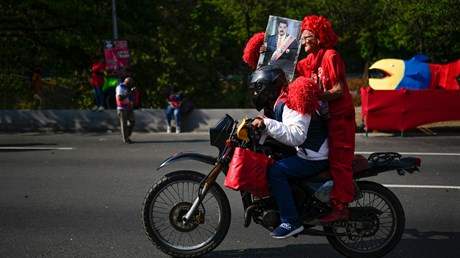 In many countries, politicians try to win over religious voters by highlighting areas of shared interest between their agenda and the faithful’s priorities. In Venezuela, candidates are offering pastors cash.With less than three months until Venezuela’s presidential elections, incumbent Nicolás Maduro is expanding two initiatives specifically aimed at the evangelical community, which represents 30.9 percent of the country’s population.Bono El Buen Pastor (“The Good Shepherd Bonus”), created last year, and Plan Mi Iglesia Bien Equipada (“My Well-Equipped Church Plan”) offer resources to pastors and their churches, including cash, chairs, construction materials, and expensive sound equipment—no strings attached. Mi Iglesia Bien Equipada exists under Misión Venezuela Bella, a government program that invests in recreation and arts spaces, which has remodeled nearly 3,000 churches since 2019.At the beginning of March, Maduro gathered 17,000 people in a pastors-only event in the northern city of Carabobo and announced that 20,000 additional pastors had become beneficiaries of the Bono El Buen Pastor program, which would deliver a monthly stipend of 495 bolivars (around $14 USD) to each new member. (Venezuela’s minimum legal monthly wage is 130 bolivars or $3.50.)Officially, the government says the program aims to give churchgoers dignified spaces where they can develop their faith. There are, however, those who view the state’s generosity with some suspicion.César Mermejo, president of the Evangelical Council of Venezuela and a leader of the Federación de Iglesias Mizpa de Venezuela, called these efforts by Maduro an attempt to buy the souls ...Continue reading... In many countries, politicians try to win over religious voters by highlighting areas of shared interest between their agenda and the faithful’s priorities. In Venezuela, candidates are offering pastors cash.With less than three months until Venezuela’s presidential elections, incumbent Nicolás Maduro is expanding two initiatives specifically aimed at the evangelical community, which represents 30.9 percent of the country’s population.Bono El Buen Pastor (“The Good Shepherd Bonus”), created last year, and Plan Mi Iglesia Bien Equipada (“My Well-Equipped Church Plan”) offer resources to pastors and their churches, including cash, chairs, construction materials, and expensive sound equipment—no strings attached. Mi Iglesia Bien Equipada exists under Misión Venezuela Bella, a government program that invests in recreation and arts spaces, which has remodeled nearly 3,000 churches since 2019.At the beginning of March, Maduro gathered 17,000 people in a pastors-only event in the northern city of Carabobo and announced that 20,000 additional pastors had become beneficiaries of the Bono El Buen Pastor program, which would deliver a monthly stipend of 495 bolivars (around $14 USD) to each new member. (Venezuela’s minimum legal monthly wage is 130 bolivars or $3.50.)Officially, the government says the program aims to give churchgoers dignified spaces where they can develop their faith. There are, however, those who view the state’s generosity with some suspicion.César Mermejo, president of the Evangelical Council of Venezuela and a leader of the Federación de Iglesias Mizpa de Venezuela, called these efforts by Maduro an attempt to buy the souls ...Continue reading... |
The Church of England enacted its “Prayers of Love and Faith" guidelines last December, that permits priests to bless same-sex couples but does not require them to do so. Many evangelicals within the Church of England, however, opposed the measure.
|
As the presidential election approaches, the incumbent government seeks to win support with aid to churches and pastors.
 In many countries, politicians try to win over religious voters by highlighting areas of shared interest between their agenda and the faithful’s priorities. In Venezuela, candidates are offering pastors cash.With less than three months until Venezuela’s presidential elections, incumbent Nicolás Maduro is expanding two initiatives specifically aimed at the evangelical community, which represents 30.9 percent of the country’s population.Bono El Buen Pastor (“The Good Shepherd Bonus”), created last year, and Plan Mi Iglesia Bien Equipada (“My Well-Equipped Church Plan”) offer resources to pastors and their churches, including cash, chairs, construction materials, and expensive sound equipment—no strings attached. Mi Iglesia Bien Equipada exists under Misión Venezuela Bella, a government program that invests in recreation and arts spaces, which has remodeled nearly 3,000 churches since 2019.At the beginning of March, Maduro gathered 17,000 people in a pastors-only event in the northern city of Carabobo and announced that 20,000 additional pastors had become beneficiaries of the Bono El Buen Pastor program, which would deliver a monthly stipend of 495 bolivars (around $14 USD) to each new member. (Venezuela’s minimum legal monthly wage is 130 bolivars or $3.50.)Officially, the government says the program aims to give churchgoers dignified spaces where they can develop their faith. There are, however, those who view the state’s generosity with some suspicion.César Mermejo, president of the Evangelical Council of Venezuela and a leader of the Federación de Iglesias Mizpa de Venezuela, called these efforts by Maduro an attempt to buy the souls ...Continue reading... In many countries, politicians try to win over religious voters by highlighting areas of shared interest between their agenda and the faithful’s priorities. In Venezuela, candidates are offering pastors cash.With less than three months until Venezuela’s presidential elections, incumbent Nicolás Maduro is expanding two initiatives specifically aimed at the evangelical community, which represents 30.9 percent of the country’s population.Bono El Buen Pastor (“The Good Shepherd Bonus”), created last year, and Plan Mi Iglesia Bien Equipada (“My Well-Equipped Church Plan”) offer resources to pastors and their churches, including cash, chairs, construction materials, and expensive sound equipment—no strings attached. Mi Iglesia Bien Equipada exists under Misión Venezuela Bella, a government program that invests in recreation and arts spaces, which has remodeled nearly 3,000 churches since 2019.At the beginning of March, Maduro gathered 17,000 people in a pastors-only event in the northern city of Carabobo and announced that 20,000 additional pastors had become beneficiaries of the Bono El Buen Pastor program, which would deliver a monthly stipend of 495 bolivars (around $14 USD) to each new member. (Venezuela’s minimum legal monthly wage is 130 bolivars or $3.50.)Officially, the government says the program aims to give churchgoers dignified spaces where they can develop their faith. There are, however, those who view the state’s generosity with some suspicion.César Mermejo, president of the Evangelical Council of Venezuela and a leader of the Federación de Iglesias Mizpa de Venezuela, called these efforts by Maduro an attempt to buy the souls ...Continue reading... |
As the presidential election approaches, the incumbent government seeks to win support with aid to churches and pastors.
 In many countries, politicians try to win over religious voters by highlighting areas of shared interest between their agenda and the faithful’s priorities. In Venezuela, candidates are offering pastors cash.With less than three months until Venezuela’s presidential elections, incumbent Nicolás Maduro is expanding two initiatives specifically aimed at the evangelical community, which represents 30.9 percent of the country’s population.Bono El Buen Pastor (“The Good Shepherd Bonus”), created last year, and Plan Mi Iglesia Bien Equipada (“My Well-Equipped Church Plan”) offer resources to pastors and their churches, including cash, chairs, construction materials, and expensive sound equipment—no strings attached. Mi Iglesia Bien Equipada exists under Misión Venezuela Bella, a government program that invests in recreation and arts spaces, which has remodeled nearly 3,000 churches since 2019.At the beginning of March, Maduro gathered 17,000 people in a pastors-only event in the northern city of Carabobo and announced that 20,000 additional pastors had become beneficiaries of the Bono El Buen Pastor program, which would deliver a monthly stipend of 495 bolivars (around $14 USD) to each new member. (Venezuela’s minimum legal monthly wage is 130 bolivars or $3.50.)Officially, the government says the program aims to give churchgoers dignified spaces where they can develop their faith. There are, however, those who view the state’s generosity with some suspicion.César Mermejo, president of the Evangelical Council of Venezuela and a leader of the Federación de Iglesias Mizpa de Venezuela, called these efforts by Maduro an attempt to buy the souls ...Continue reading... In many countries, politicians try to win over religious voters by highlighting areas of shared interest between their agenda and the faithful’s priorities. In Venezuela, candidates are offering pastors cash.With less than three months until Venezuela’s presidential elections, incumbent Nicolás Maduro is expanding two initiatives specifically aimed at the evangelical community, which represents 30.9 percent of the country’s population.Bono El Buen Pastor (“The Good Shepherd Bonus”), created last year, and Plan Mi Iglesia Bien Equipada (“My Well-Equipped Church Plan”) offer resources to pastors and their churches, including cash, chairs, construction materials, and expensive sound equipment—no strings attached. Mi Iglesia Bien Equipada exists under Misión Venezuela Bella, a government program that invests in recreation and arts spaces, which has remodeled nearly 3,000 churches since 2019.At the beginning of March, Maduro gathered 17,000 people in a pastors-only event in the northern city of Carabobo and announced that 20,000 additional pastors had become beneficiaries of the Bono El Buen Pastor program, which would deliver a monthly stipend of 495 bolivars (around $14 USD) to each new member. (Venezuela’s minimum legal monthly wage is 130 bolivars or $3.50.)Officially, the government says the program aims to give churchgoers dignified spaces where they can develop their faith. There are, however, those who view the state’s generosity with some suspicion.César Mermejo, president of the Evangelical Council of Venezuela and a leader of the Federación de Iglesias Mizpa de Venezuela, called these efforts by Maduro an attempt to buy the souls ...Continue reading... |
A late historian explores how crusade hymns told both the classic story of gospel salvation and the evolving story of evangelical worship music.
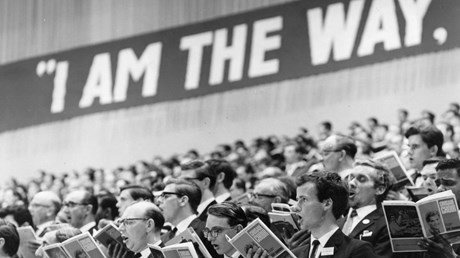 Crowds of over 50,000. Famous special guests. Hundreds of cities in the US and around the world. Beloved, catchy songs. For many, these might sound like readouts from the Taylor Swift Eras Tour hype machine. But exchange the glittery girl power for the gospel in baritone, and you have one of the most successful musical touring acts in the postwar world: the Billy Graham Crusades.The first association that “Billy Graham Crusade” may evoke is not musical at all, but rather a close-up shot of the evangelist, with his penetrating, wide-eyed gaze and raised forearms, thundering, “The Bible says …” Admittedly, music was not the main focus.Yet as the late historian Edith Blumhofer shows in her final book, Songs I Love to Sing: The Billy Graham Crusades and the Shaping of Modern Worship, neither Graham’s ministry nor the late-century rise of contemporary Christian music can be understood without it. As crusade song leader Cliff Barrows pursued his main goal—“sing to save”—he and his teammates bridged stylistic, cultural, and generational divides, transforming evangelicals’ music into the harmonic blend of old and new that is familiar today.Mining rich resourcesBefore unpacking this highly original book, a few words about the author. Blumhofer is an American religious historian renowned for her empathetic biographies of hymnist Fanny J. Crosby and evangelist Aimee Semple McPherson, as well as broader studies of evangelicalism and Pentecostalism. She concluded her career with this new study, sadly succumbing to a battle with cancer in the process.To finish the project, she tapped Jesus People expert Larry Eskridge, with whom she had for many years directed the Institute ...Continue reading... Crowds of over 50,000. Famous special guests. Hundreds of cities in the US and around the world. Beloved, catchy songs. For many, these might sound like readouts from the Taylor Swift Eras Tour hype machine. But exchange the glittery girl power for the gospel in baritone, and you have one of the most successful musical touring acts in the postwar world: the Billy Graham Crusades.The first association that “Billy Graham Crusade” may evoke is not musical at all, but rather a close-up shot of the evangelist, with his penetrating, wide-eyed gaze and raised forearms, thundering, “The Bible says …” Admittedly, music was not the main focus.Yet as the late historian Edith Blumhofer shows in her final book, Songs I Love to Sing: The Billy Graham Crusades and the Shaping of Modern Worship, neither Graham’s ministry nor the late-century rise of contemporary Christian music can be understood without it. As crusade song leader Cliff Barrows pursued his main goal—“sing to save”—he and his teammates bridged stylistic, cultural, and generational divides, transforming evangelicals’ music into the harmonic blend of old and new that is familiar today.Mining rich resourcesBefore unpacking this highly original book, a few words about the author. Blumhofer is an American religious historian renowned for her empathetic biographies of hymnist Fanny J. Crosby and evangelist Aimee Semple McPherson, as well as broader studies of evangelicalism and Pentecostalism. She concluded her career with this new study, sadly succumbing to a battle with cancer in the process.To finish the project, she tapped Jesus People expert Larry Eskridge, with whom she had for many years directed the Institute ...Continue reading... |
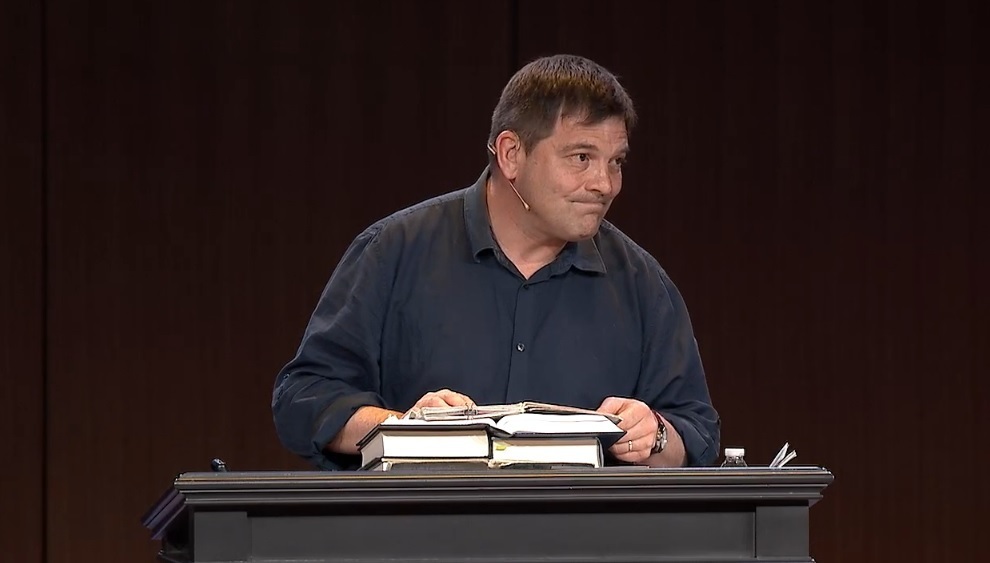 Rico Tice, a well-known Evangelical leader and former Church of England clergyman, has left the denomination in reaction to what he perceives as its growing departure from biblical values, especially concerning same-sex marriage and repentance. Rico Tice, a well-known Evangelical leader and former Church of England clergyman, has left the denomination in reaction to what he perceives as its growing departure from biblical values, especially concerning same-sex marriage and repentance. |
After lobbying from fellow Southern Baptists and Christians affected by the war, the House speaker moves a package forward.
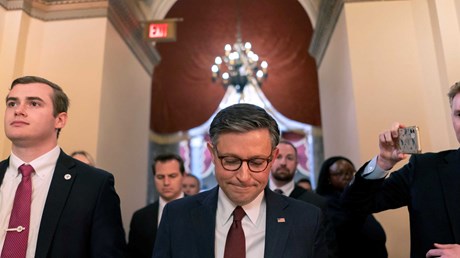 When deciding whether to protect his place in leadership as House speaker or go against his party to do what he believed was right, Mike Johnson turned to prayer.After weeks of hearing intelligence briefings and pleas from fellow Christians, Johnson ultimately sided with his convictions rather than conceding to the Republican Party’s isolationist wing. He backed a $95 billion foreign aid package that, despite the opposition of 112 GOP legislators, overwhelmingly passed the House of Representatives last weekend.Like many of his fellow Republicans, Johnson had initially opposed further aid to Ukraine, voting against it prior to becoming speaker and waiting months to move forward with an aid package after the Senate approved its version in February.He “went through a transformation,” according to one GOP colleague, House Foreign Affairs Committee chairman Michael McCaul. The shift may have come in part due to the influence of Ukrainian evangelicals, fellow Christian leaders, and his personal faith.“He got down on his knees, and he prayed for guidance and said, ‘Look, tell me. What is the right thing to do here?’” the Texas congressman told NOTUS’s Haley Byrd Wilt. The next day, Johnson said to McCaul, “I want to be on the right side of history.”The House vote on the Ukraine provisions, around $61 billion, was 311 to 112; a majority of Johnson’s colleagues voted against the measure, while aid to Israel and Taiwan had broader support. The Senate cleared the package Tuesday in a bipartisan 79–18 vote. Now the measure heads to President Joe Biden’s desk.Ukrainian leadership had grown more vocal about depleted weapons two years ...Continue reading... When deciding whether to protect his place in leadership as House speaker or go against his party to do what he believed was right, Mike Johnson turned to prayer.After weeks of hearing intelligence briefings and pleas from fellow Christians, Johnson ultimately sided with his convictions rather than conceding to the Republican Party’s isolationist wing. He backed a $95 billion foreign aid package that, despite the opposition of 112 GOP legislators, overwhelmingly passed the House of Representatives last weekend.Like many of his fellow Republicans, Johnson had initially opposed further aid to Ukraine, voting against it prior to becoming speaker and waiting months to move forward with an aid package after the Senate approved its version in February.He “went through a transformation,” according to one GOP colleague, House Foreign Affairs Committee chairman Michael McCaul. The shift may have come in part due to the influence of Ukrainian evangelicals, fellow Christian leaders, and his personal faith.“He got down on his knees, and he prayed for guidance and said, ‘Look, tell me. What is the right thing to do here?’” the Texas congressman told NOTUS’s Haley Byrd Wilt. The next day, Johnson said to McCaul, “I want to be on the right side of history.”The House vote on the Ukraine provisions, around $61 billion, was 311 to 112; a majority of Johnson’s colleagues voted against the measure, while aid to Israel and Taiwan had broader support. The Senate cleared the package Tuesday in a bipartisan 79–18 vote. Now the measure heads to President Joe Biden’s desk.Ukrainian leadership had grown more vocal about depleted weapons two years ...Continue reading... |
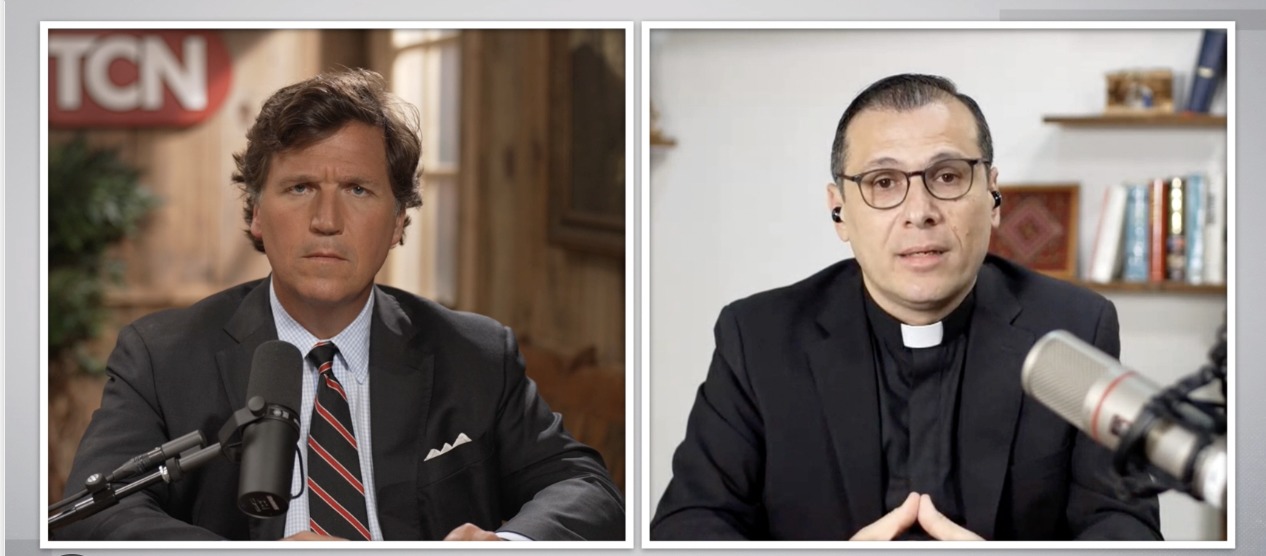 Faith leaders have pushed back against anti-Israel rhetoric promoted by Munther Isaac, the pastor of the Evangelical Lutheran Christmas Church in Bethlehem, in a recent Tucker Carlson interview. Faith leaders have pushed back against anti-Israel rhetoric promoted by Munther Isaac, the pastor of the Evangelical Lutheran Christmas Church in Bethlehem, in a recent Tucker Carlson interview. |
"They're depressed and anxious and have been discipled, so to speak, by social media and phones and all that," he said Tuesday during the panel discussion about the Asbury outpouring at the Evangelical Press Association's convention in Lexington, Ky. "But that doesn't mean they are not hungry for something that's good and right and true and real."
|
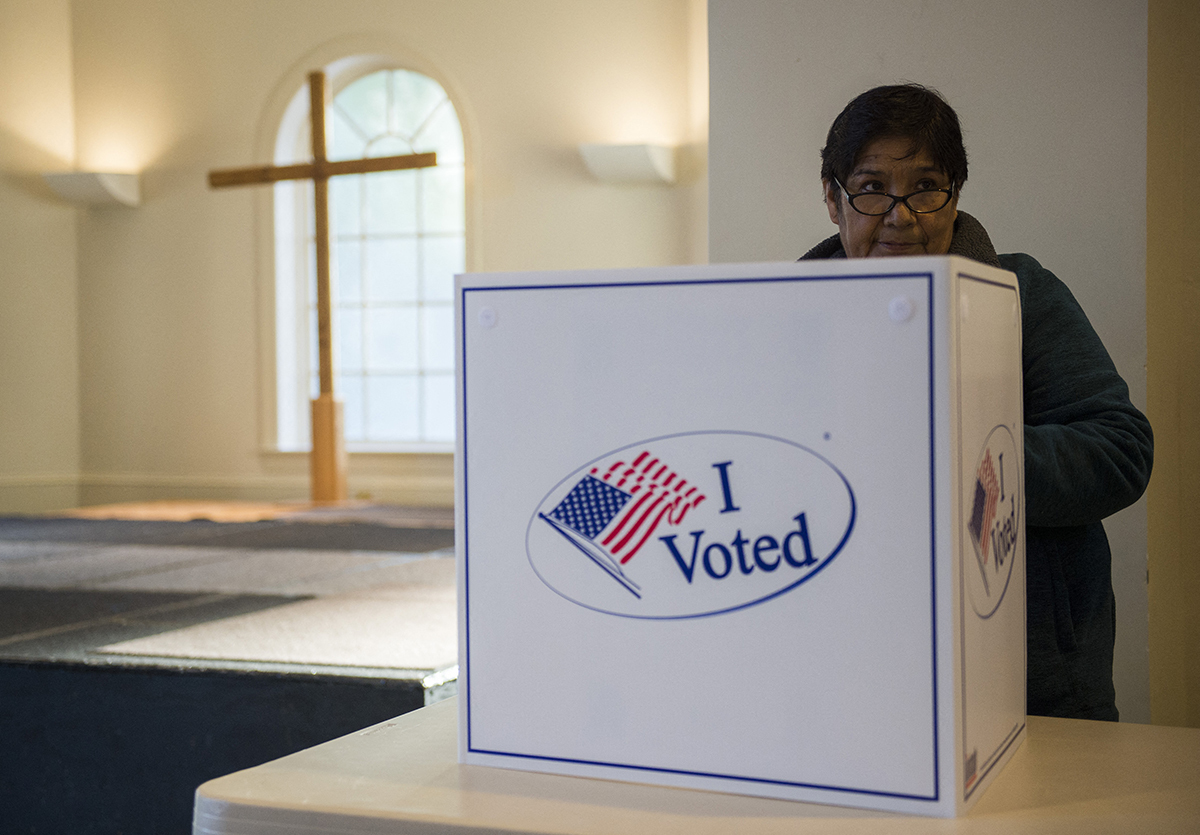 A new survey reveals that Evangelicals view immigration, American sovereignty and abortion as the top issues facing the United States heading into the 2024 presidential election. A new survey reveals that Evangelicals view immigration, American sovereignty and abortion as the top issues facing the United States heading into the 2024 presidential election. |
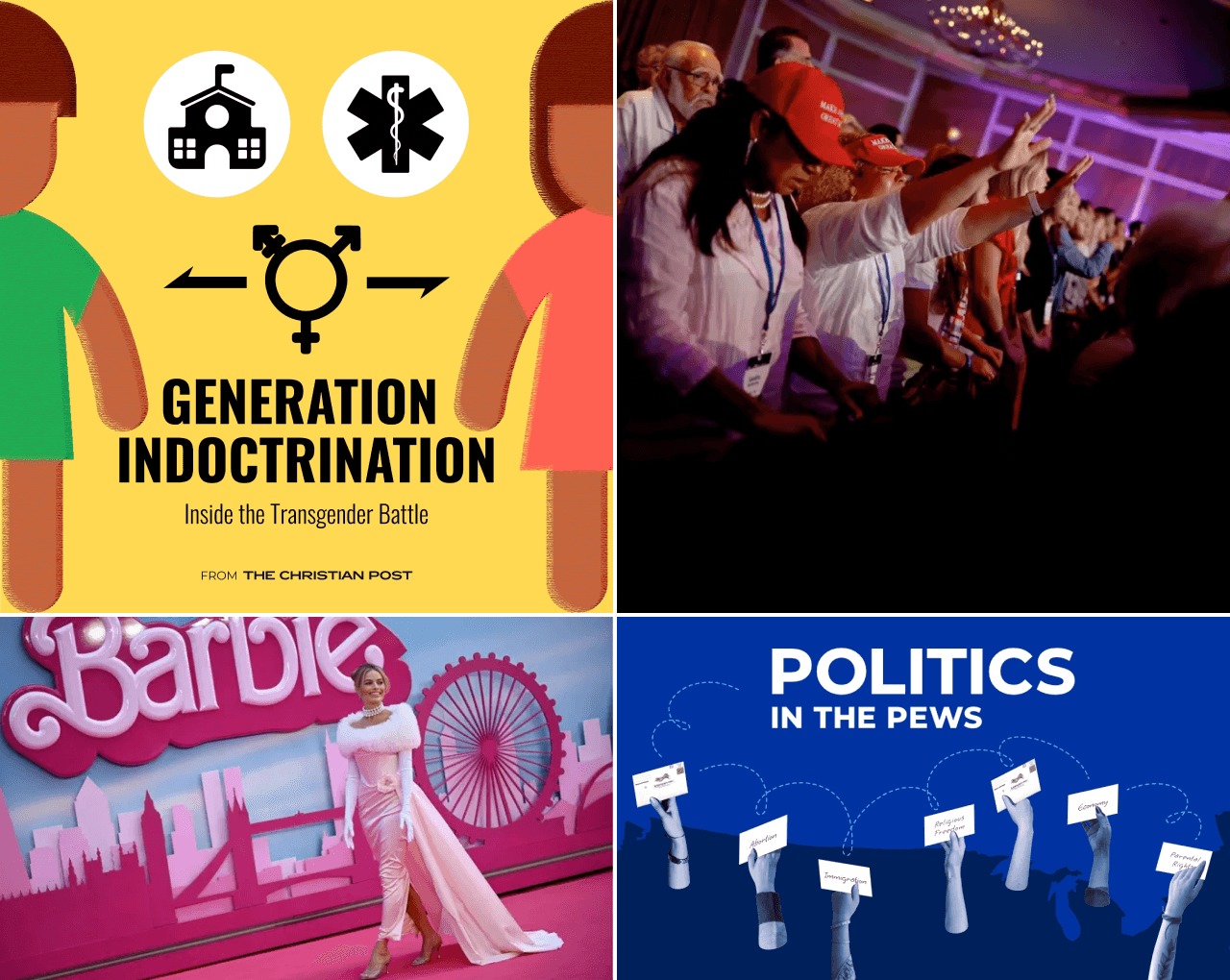 The Christian Post won four awards at this week's Evangelical Press Association Christian Media Convention in Lexington, Kentucky, an annual conference attended by a wide variety of Christian newspapers, magazines, nonprofits and publishers.? The Christian Post won four awards at this week's Evangelical Press Association Christian Media Convention in Lexington, Kentucky, an annual conference attended by a wide variety of Christian newspapers, magazines, nonprofits and publishers.? |
After lobbying from fellow Southern Baptists and Christians affected by the war, the House speaker moves a package forward.
 When deciding whether to protect his place in leadership as House speaker or go against his party to do what he believed was right, Mike Johnson turned to prayer.It had been weeks of hearing intelligence briefings and pleas from fellow Christians when Johnson ultimately sided with his convictions rather than conceding to the Republican Party’s isolationist wing. He backed a $95 billion foreign aid package that, despite the opposition of 112 GOP legislators, overwhelmingly passed the House of Representatives last weekend.Like many of his fellow Republicans, Johnson had initially opposed further aid to Ukraine, voting against it prior to becoming speaker and waiting months to move forward with an aid package after the Senate approved its version in February.He “went through a transformation,” according to one GOP colleague, House Foreign Affairs Committee chairman Michael McCaul. The shift may have come in part due to the influence of Ukrainian evangelicals, fellow Christian leaders, and his personal faith.“He got down on his knees, and he prayed for guidance and said, ‘Look, tell me. What is the right thing to do here?’” the Texas congressman told NOTUS’s Haley Byrd Wilt. The next day, Johnson said to McCaul, “I want to be on the right side of history.”The House vote on the Ukraine provisions, around $61 billion, was 311 to 112; a majority of Johnson’s colleagues voted against the measure, while aid to Israel and Taiwan had broader support. The Senate cleared the package Tuesday in a bipartisan 79–18 vote. Now the measure heads to President Joe Biden’s desk.Ukrainian leadership had grown more vocal about depleted weapons ...Continue reading... When deciding whether to protect his place in leadership as House speaker or go against his party to do what he believed was right, Mike Johnson turned to prayer.It had been weeks of hearing intelligence briefings and pleas from fellow Christians when Johnson ultimately sided with his convictions rather than conceding to the Republican Party’s isolationist wing. He backed a $95 billion foreign aid package that, despite the opposition of 112 GOP legislators, overwhelmingly passed the House of Representatives last weekend.Like many of his fellow Republicans, Johnson had initially opposed further aid to Ukraine, voting against it prior to becoming speaker and waiting months to move forward with an aid package after the Senate approved its version in February.He “went through a transformation,” according to one GOP colleague, House Foreign Affairs Committee chairman Michael McCaul. The shift may have come in part due to the influence of Ukrainian evangelicals, fellow Christian leaders, and his personal faith.“He got down on his knees, and he prayed for guidance and said, ‘Look, tell me. What is the right thing to do here?’” the Texas congressman told NOTUS’s Haley Byrd Wilt. The next day, Johnson said to McCaul, “I want to be on the right side of history.”The House vote on the Ukraine provisions, around $61 billion, was 311 to 112; a majority of Johnson’s colleagues voted against the measure, while aid to Israel and Taiwan had broader support. The Senate cleared the package Tuesday in a bipartisan 79–18 vote. Now the measure heads to President Joe Biden’s desk.Ukrainian leadership had grown more vocal about depleted weapons ...Continue reading... |
After lobbying from fellow Southern Baptists and Christians affected by the war, the House speaker moves a package forward.
 When deciding whether to protect his place in leadership as House speaker or go against his party to do what he believed was right, Mike Johnson turned to prayer.It had been weeks of hearing intelligence briefings and pleas from fellow Christians when Johnson ultimately sided with his convictions rather than conceding to the Republican Party’s isolationist wing. He backed a $95 billion foreign aid package that, despite the opposition of 112 GOP legislators, overwhelmingly passed the House of Representatives last weekend.Like many of his fellow Republicans, Johnson had initially opposed further aid to Ukraine, voting against it prior to becoming speaker and waiting months to move forward with an aid package after the Senate approved its version in February.He “went through a transformation,” according to one GOP colleague, House Foreign Affairs Committee chairman Michael McCaul. The shift may have come in part due to the influence of Ukrainian evangelicals, fellow Christian leaders, and his personal faith.“He got down on his knees, and he prayed for guidance and said, ‘Look, tell me. What is the right thing to do here?’” the Texas congressman told NOTUS’s Haley Byrd Wilt. The next day, Johnson said to McCaul, “I want to be on the right side of history.”The House vote on the Ukraine provisions, around $61 billion, was 311 to 112; a majority of Johnson’s colleagues voted against the measure, while aid to Israel and Taiwan had broader support. The Senate cleared the package Tuesday in a bipartisan 79–18 vote. Now the measure heads to President Joe Biden’s desk.Ukrainian leadership had grown more vocal about depleted weapons ...Continue reading... When deciding whether to protect his place in leadership as House speaker or go against his party to do what he believed was right, Mike Johnson turned to prayer.It had been weeks of hearing intelligence briefings and pleas from fellow Christians when Johnson ultimately sided with his convictions rather than conceding to the Republican Party’s isolationist wing. He backed a $95 billion foreign aid package that, despite the opposition of 112 GOP legislators, overwhelmingly passed the House of Representatives last weekend.Like many of his fellow Republicans, Johnson had initially opposed further aid to Ukraine, voting against it prior to becoming speaker and waiting months to move forward with an aid package after the Senate approved its version in February.He “went through a transformation,” according to one GOP colleague, House Foreign Affairs Committee chairman Michael McCaul. The shift may have come in part due to the influence of Ukrainian evangelicals, fellow Christian leaders, and his personal faith.“He got down on his knees, and he prayed for guidance and said, ‘Look, tell me. What is the right thing to do here?’” the Texas congressman told NOTUS’s Haley Byrd Wilt. The next day, Johnson said to McCaul, “I want to be on the right side of history.”The House vote on the Ukraine provisions, around $61 billion, was 311 to 112; a majority of Johnson’s colleagues voted against the measure, while aid to Israel and Taiwan had broader support. The Senate cleared the package Tuesday in a bipartisan 79–18 vote. Now the measure heads to President Joe Biden’s desk.Ukrainian leadership had grown more vocal about depleted weapons ...Continue reading... |
C.S. Lewis recommended discernment over diatribes in exactly the moments we're most eager to indulge in critique.
 I’d just finished reading one of C. S. Lewis’s lesser-known books, Studies in Words, when I happened upon a recent New York Times report on evangelical support for Donald Trump. The former president’s summer of legal woes is off to an early start, and many have asked whether the present trial (or another) will lose him support ahead of Election Day. The answer—among his base, anyway—is undoubtedly no.If anything, the opposite is true: In some circles, his adversities are hailed as a kind of vindication, his endurance on the campaign trail as a sign of divine blessing. “For some of Mr. Trump’s supporters, the political attacks and legal peril he faces are nothing short of biblical,” the report said. “They’ve crucified him worse than Jesus,” one Trump enthusiast told the Times.Now, the Lewis book is mostly fascinating linguistic history, but the last chapter examines how we use language to dispense criticism, and its final two pages are precisely the warning our political culture needs as we plod through another contentious election. It’s certainly the warning I need and the warning I hope fellow Christians will heed, particularly those of us in politically diverse families, friend groups, and congregations.I realized how much I needed it as I read that Times article. It published on Easter Monday and I read it the same day, the drama of Easter weekend fresh on my mind. Suffice it to say, the crucifixion line did not sit well with me.“Worse than Jesus”! I remember thinking. I agree some of this legal stuff is far-fetched, but are you kidding me? Do these people not know what crucifixion entails? Do they not know Trump probably sleeps on silk ...Continue reading... I’d just finished reading one of C. S. Lewis’s lesser-known books, Studies in Words, when I happened upon a recent New York Times report on evangelical support for Donald Trump. The former president’s summer of legal woes is off to an early start, and many have asked whether the present trial (or another) will lose him support ahead of Election Day. The answer—among his base, anyway—is undoubtedly no.If anything, the opposite is true: In some circles, his adversities are hailed as a kind of vindication, his endurance on the campaign trail as a sign of divine blessing. “For some of Mr. Trump’s supporters, the political attacks and legal peril he faces are nothing short of biblical,” the report said. “They’ve crucified him worse than Jesus,” one Trump enthusiast told the Times.Now, the Lewis book is mostly fascinating linguistic history, but the last chapter examines how we use language to dispense criticism, and its final two pages are precisely the warning our political culture needs as we plod through another contentious election. It’s certainly the warning I need and the warning I hope fellow Christians will heed, particularly those of us in politically diverse families, friend groups, and congregations.I realized how much I needed it as I read that Times article. It published on Easter Monday and I read it the same day, the drama of Easter weekend fresh on my mind. Suffice it to say, the crucifixion line did not sit well with me.“Worse than Jesus”! I remember thinking. I agree some of this legal stuff is far-fetched, but are you kidding me? Do these people not know what crucifixion entails? Do they not know Trump probably sleeps on silk ...Continue reading... |
Studies find that while less than a third of Americans trust church leaders, 90 percent of Filipinos do.
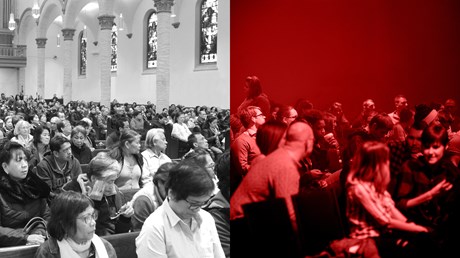 While less than a third of Americans rate clergy as highly honest and ethical, across the globe in the Philippines, 91 percent of the public trusts religious leaders, according to EON Group’s 2021 Philippine Trust Index. Respondents of the survey ranked pastors as the most trusted leaders in Filipino society, compared to a Gallup poll that found clergy in the US ranked lower than 10 other professions, including chiropractors and police officers.“When people outside of church find out I’m a pastor, their demeanor changes out of respect,” said Aldrin Peñamora, director of the Philippine Council of Evangelical Churches’ Justice, Peace, and Reconciliation Commission. Some people even ask him for prayer.The disconnect is rooted in cultural differences, religion’s role in society, as well as the impact of church scandals. Still, pastors from both countries noted the importance of having pastors engage with their congregations and local communities to build trust.Drivers of trust in the Filipino churchIn the Philippines, Catholics make up 80 percent of the population, while evangelicals make up about 3 percent. Catholicism came to the Philippines through Spanish colonialism and stuck as Filipinos made their faith their own. Today, the Catholic faith has become a cultural attribute of Filipino life.The high view of church leaders also reflects traditional Filipino values, said Peñamora: “Filipino culture values respecting the elderly, which spills over to their submission to people in authority, including religious authority.”In the Philippines, older people are considered wise, and they provide a sense of order and direction to the life of the community, Peñamora ...Continue reading... While less than a third of Americans rate clergy as highly honest and ethical, across the globe in the Philippines, 91 percent of the public trusts religious leaders, according to EON Group’s 2021 Philippine Trust Index. Respondents of the survey ranked pastors as the most trusted leaders in Filipino society, compared to a Gallup poll that found clergy in the US ranked lower than 10 other professions, including chiropractors and police officers.“When people outside of church find out I’m a pastor, their demeanor changes out of respect,” said Aldrin Peñamora, director of the Philippine Council of Evangelical Churches’ Justice, Peace, and Reconciliation Commission. Some people even ask him for prayer.The disconnect is rooted in cultural differences, religion’s role in society, as well as the impact of church scandals. Still, pastors from both countries noted the importance of having pastors engage with their congregations and local communities to build trust.Drivers of trust in the Filipino churchIn the Philippines, Catholics make up 80 percent of the population, while evangelicals make up about 3 percent. Catholicism came to the Philippines through Spanish colonialism and stuck as Filipinos made their faith their own. Today, the Catholic faith has become a cultural attribute of Filipino life.The high view of church leaders also reflects traditional Filipino values, said Peñamora: “Filipino culture values respecting the elderly, which spills over to their submission to people in authority, including religious authority.”In the Philippines, older people are considered wise, and they provide a sense of order and direction to the life of the community, Peñamora ...Continue reading... |
Interview with leader of new evangelical alliance describes his escape from Khartoum and the pressure to pick a side.
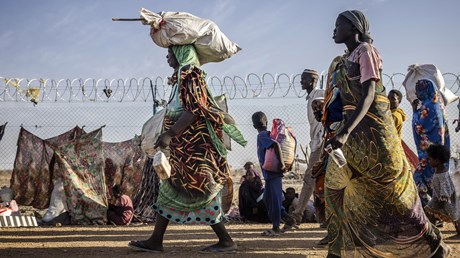 Overlooked by crises in Gaza and Ukraine, Sudan has now endured one year of civil war. Nearly 16,000 people have been killed, with 8.2 million fleeing from their homes—including 4 million children. Both figures are global highs for internal displacement.The United Nations stated that the “world’s worst hunger crisis” is looming, warning that one-third of Sudan’s 49 million people suffer acute food insecurity and 222,000 children could die of starvation within weeks. Yet an international emergency response plan, endorsed by UN agencies including the Cindy McCain-led World Food Program, is only six percent funded.Sudanese Christians feel like “no one cares.”Five years earlier, they had great hope. In 2019 a popular revolution overthrew longtime dictator Omar al-Bashir, wanted for war crimes against his people. The new civilian government repealed the law of apostasy, removed Islamist elements from the bureaucracy, and implemented other democratic reforms. But in 2021 the general of the army, in cooperation with the leader of the Rapid Support Forces (RSF)—a government-aligned paramilitary group accused of the atrocities in Darfur—deposed the prime minister.Continuing negotiations with civilian leaders demanded a merger of the two armed forces, but neither general could agree on terms. And while it is not clear who fired the first shot, last year on April 15 the conflict exploded in the capital of Khartoum. Much of the North African nation is now a war zone.Yet somehow, an evangelical alliance has formed and joined two regional bodies.Rafat Samir, secretary general of the Sudan Evangelical Alliance, witnessed the outbreak of violence firsthand. Now ...Continue reading... Overlooked by crises in Gaza and Ukraine, Sudan has now endured one year of civil war. Nearly 16,000 people have been killed, with 8.2 million fleeing from their homes—including 4 million children. Both figures are global highs for internal displacement.The United Nations stated that the “world’s worst hunger crisis” is looming, warning that one-third of Sudan’s 49 million people suffer acute food insecurity and 222,000 children could die of starvation within weeks. Yet an international emergency response plan, endorsed by UN agencies including the Cindy McCain-led World Food Program, is only six percent funded.Sudanese Christians feel like “no one cares.”Five years earlier, they had great hope. In 2019 a popular revolution overthrew longtime dictator Omar al-Bashir, wanted for war crimes against his people. The new civilian government repealed the law of apostasy, removed Islamist elements from the bureaucracy, and implemented other democratic reforms. But in 2021 the general of the army, in cooperation with the leader of the Rapid Support Forces (RSF)—a government-aligned paramilitary group accused of the atrocities in Darfur—deposed the prime minister.Continuing negotiations with civilian leaders demanded a merger of the two armed forces, but neither general could agree on terms. And while it is not clear who fired the first shot, last year on April 15 the conflict exploded in the capital of Khartoum. Much of the North African nation is now a war zone.Yet somehow, an evangelical alliance has formed and joined two regional bodies.Rafat Samir, secretary general of the Sudan Evangelical Alliance, witnessed the outbreak of violence firsthand. Now ...Continue reading... |
Interview with leader of new evangelical alliance describes his escape from Khartoum and the pressure to pick a side.
 Overlooked by crises in Gaza and Ukraine, Sudan has now endured one year of civil war. Nearly 16,000 people have been killed, with 8.2 million fleeing from their homes—including 4 million children. Both figures are global highs for internal displacement.The United Nations stated that the “world’s worst hunger crisis” is looming, warning that one-third of Sudan’s 49 million people suffer acute food insecurity and 222,000 children could die of starvation within weeks. Yet an international emergency response plan, endorsed by UN agencies including the Cindy McCain-led World Food Program, is only six percent funded.Sudanese Christians feel like “no one cares.”Five years earlier, they had great hope. In 2019 a popular revolution overthrew longtime dictator Omar al-Bashir, wanted for war crimes against his people. The new civilian government repealed the law of apostasy, removed Islamist elements from the bureaucracy, and implemented other democratic reforms. But in 2021 the general of the army, in cooperation with the leader of the Rapid Support Forces (RSF)—a government-aligned paramilitary group accused of the atrocities in Darfur—deposed the prime minister.Continuing negotiations with civilian leaders demanded a merger of the two armed forces, but neither general could agree on terms. And while it is not clear who fired the first shot, last year on April 15 the conflict exploded in the capital of Khartoum. Much of the North African nation is now a war zone.Yet somehow, an evangelical alliance has formed and joined two regional bodies.Rafat Samir, secretary general of the Sudan Evangelical Alliance, witnessed the outbreak of violence firsthand. Now ...Continue reading... Overlooked by crises in Gaza and Ukraine, Sudan has now endured one year of civil war. Nearly 16,000 people have been killed, with 8.2 million fleeing from their homes—including 4 million children. Both figures are global highs for internal displacement.The United Nations stated that the “world’s worst hunger crisis” is looming, warning that one-third of Sudan’s 49 million people suffer acute food insecurity and 222,000 children could die of starvation within weeks. Yet an international emergency response plan, endorsed by UN agencies including the Cindy McCain-led World Food Program, is only six percent funded.Sudanese Christians feel like “no one cares.”Five years earlier, they had great hope. In 2019 a popular revolution overthrew longtime dictator Omar al-Bashir, wanted for war crimes against his people. The new civilian government repealed the law of apostasy, removed Islamist elements from the bureaucracy, and implemented other democratic reforms. But in 2021 the general of the army, in cooperation with the leader of the Rapid Support Forces (RSF)—a government-aligned paramilitary group accused of the atrocities in Darfur—deposed the prime minister.Continuing negotiations with civilian leaders demanded a merger of the two armed forces, but neither general could agree on terms. And while it is not clear who fired the first shot, last year on April 15 the conflict exploded in the capital of Khartoum. Much of the North African nation is now a war zone.Yet somehow, an evangelical alliance has formed and joined two regional bodies.Rafat Samir, secretary general of the Sudan Evangelical Alliance, witnessed the outbreak of violence firsthand. Now ...Continue reading... |
The American Solidarity Party is a small but growing alternative to the Trump-Biden race.
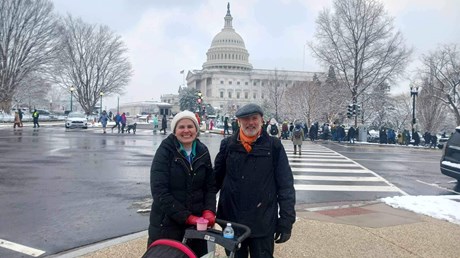 Charlie Richert would really like to stop voting for his dad.But in the last couple presidential election cycles, the 30-year-old attorney in Indianapolis has been unable to square his conscience with picking either the Republican or Democratic party nominee, so he’s resorted to writing in a name.“There’s no way I can escape having my faith inform how I vote,” said Richert, a nondenominational Christian who grew up Republican. “Unfortunately, we’ve been kind of stuck in a doom loop of candidates at the presidential level that I’ve just not felt comfortable voting for.”This year, he’s not drawn to alternatives like Robert F. Kennedy Jr. or Cornel West. “Maybe I’ll write in Abe Lincoln this year. Sorry to my dad, but a new name to write in would be fun,” he said.He recalls seeking to convince his classmates in an eighth-grade mock election that they should support Mitt Romney, but his chagrin with the Republican Party’s presidential nominee tracked with the ascension of Donald Trump.In a year when both major party presidential candidates are viewed unfavorably by a quarter of Americans, many find themselves less excited about the two options at the top of the ticket. But, like Richert, that doesn’t mean they’re ready to go for third-party options.The third-party candidates running in 2024 span the ideological spectrum, from independents Kennedy and Princeton University professor Cornel West to Green Party candidate Jill Stein. Then there are the more obscure party or candidate options—the Prohibition Party, Andrew Yang’s Forward Party, Maryland politician Jason Palmer, and that man in Texas who changed his name to “Literally ...Continue reading... Charlie Richert would really like to stop voting for his dad.But in the last couple presidential election cycles, the 30-year-old attorney in Indianapolis has been unable to square his conscience with picking either the Republican or Democratic party nominee, so he’s resorted to writing in a name.“There’s no way I can escape having my faith inform how I vote,” said Richert, a nondenominational Christian who grew up Republican. “Unfortunately, we’ve been kind of stuck in a doom loop of candidates at the presidential level that I’ve just not felt comfortable voting for.”This year, he’s not drawn to alternatives like Robert F. Kennedy Jr. or Cornel West. “Maybe I’ll write in Abe Lincoln this year. Sorry to my dad, but a new name to write in would be fun,” he said.He recalls seeking to convince his classmates in an eighth-grade mock election that they should support Mitt Romney, but his chagrin with the Republican Party’s presidential nominee tracked with the ascension of Donald Trump.In a year when both major party presidential candidates are viewed unfavorably by a quarter of Americans, many find themselves less excited about the two options at the top of the ticket. But, like Richert, that doesn’t mean they’re ready to go for third-party options.The third-party candidates running in 2024 span the ideological spectrum, from independents Kennedy and Princeton University professor Cornel West to Green Party candidate Jill Stein. Then there are the more obscure party or candidate options—the Prohibition Party, Andrew Yang’s Forward Party, Maryland politician Jason Palmer, and that man in Texas who changed his name to “Literally ...Continue reading... |
Seminary leaders say that the country, where Baptists are the largest Protestant denomination, has lost hundreds of churches in the war with Russia.
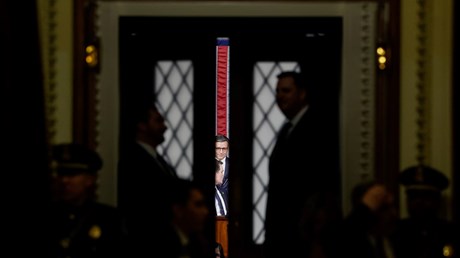 Southern Baptist leaders have written to US House Speaker Mike Johnson, a member and former official of their denomination, urging him to support Ukraine in Russia’s war against its Eastern European neighbor.“As you consider efforts to support Ukraine, we humbly ask that you consider the plight of Christians,” wrote the leaders, who either have ties to the SBC’s Southwestern Baptist Theological Seminary or to Ukrainian Baptists. “The Russian government’s decision to invade Ukraine and to target Baptists and other evangelical Christians in Ukraine has been a tragic hallmark of the war.”The letter, sent Monday, was signed by Daniel Darling, director of the seminary’s Land Center for Cultural Engagement; Richard Land, the namesake of the center and a former president of the Southern Baptist Convention’s Ethics and Religious Liberty Commission (ERLC); Yaroslav Pyzh, president of Ukrainian Baptist Theological Seminary; and Valerii Antoniu, president of the Baptist Union of Ukraine.Johnson is a former trustee of the ERLC, serving when Land—who also is a former commissioner of the US Commission on International Religious Freedom—was its president.In February, the Senate passed a $95 billion package for funding Ukraine, Israel and other allies, with $60 billion earmarked for Ukraine. But Johnson, whose tenure as House speaker may rely on his handling of the bill, has yet to schedule a House vote on the funding measure.Conservatives in the House who oppose funding for Ukraine on “America First” grounds, led by US Rep. Marjorie Taylor Greene of Georgia, have threatened to trigger a vote to remove Johnson from office.“Speaker Johnson has a really difficult ...Continue reading... Southern Baptist leaders have written to US House Speaker Mike Johnson, a member and former official of their denomination, urging him to support Ukraine in Russia’s war against its Eastern European neighbor.“As you consider efforts to support Ukraine, we humbly ask that you consider the plight of Christians,” wrote the leaders, who either have ties to the SBC’s Southwestern Baptist Theological Seminary or to Ukrainian Baptists. “The Russian government’s decision to invade Ukraine and to target Baptists and other evangelical Christians in Ukraine has been a tragic hallmark of the war.”The letter, sent Monday, was signed by Daniel Darling, director of the seminary’s Land Center for Cultural Engagement; Richard Land, the namesake of the center and a former president of the Southern Baptist Convention’s Ethics and Religious Liberty Commission (ERLC); Yaroslav Pyzh, president of Ukrainian Baptist Theological Seminary; and Valerii Antoniu, president of the Baptist Union of Ukraine.Johnson is a former trustee of the ERLC, serving when Land—who also is a former commissioner of the US Commission on International Religious Freedom—was its president.In February, the Senate passed a $95 billion package for funding Ukraine, Israel and other allies, with $60 billion earmarked for Ukraine. But Johnson, whose tenure as House speaker may rely on his handling of the bill, has yet to schedule a House vote on the funding measure.Conservatives in the House who oppose funding for Ukraine on “America First” grounds, led by US Rep. Marjorie Taylor Greene of Georgia, have threatened to trigger a vote to remove Johnson from office.“Speaker Johnson has a really difficult ...Continue reading... |
A new study finds white evangelicals are most eager to see their faith reflected more in the government, but very few say they support Christian nationalism.
|
The late prime minister welcomed our engagement at a crucial time—and changed my mind about public witness.
|
Evangelical voters' focus on policy over character came much earlier than you think.
|



 Links
Links  Articles
Articles  Blogs
Blogs  Videos
Videos  News
News  Colors
Colors 

 New links
New links

